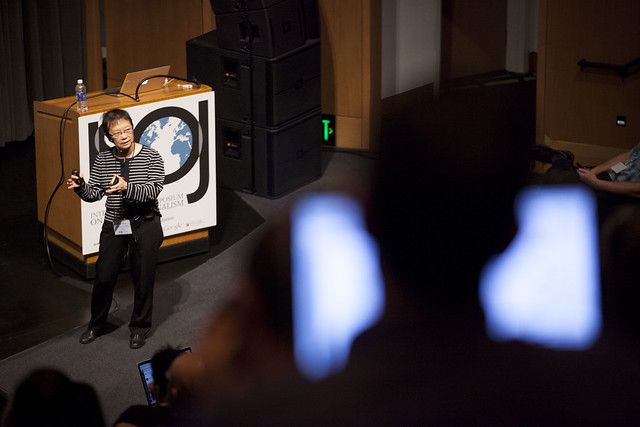April 4, 2014 | Keynote
Ying Chan addresses censorship in China during her ISOJ keynote speech

During her keynote speech at the 15th International Symposium on Online Journalism, Ying Chan, founder and director of Hong Kong Journalism and Media Studies Center, said that there is an interesting contradiction in China: on one hand the government is cracking down on journalists and social media, and on the other it has spent millions of dollars supporting and fostering Internet development.
According to the Washington Post, in February Chinese President Xi Jinping took charge of a new cyber security effort, just the latest in a long line of surveillance and content control initiatives launched since 2000. Chan said this has led to news sites being blocked, the enactment of “online rumor rules,” and a crackdown on foreign correspondents.
Nevertheless, Chan maintained that “the future is bright thanks to the Internet”. The Chinese web presence is huge, and Chan says that 81 percent of Internet users access the web via mobile phones. That factors out to 1.22 billion mobile phone users in China, a trend that has led to the creation of more “mobile-centric” web platforms such as WeChat.
“In China there is access to information even with the ‘great firewall.’ This generation is the most informed and knowledgeable generation,” Chan said.
“There are economic factors too,” she said when asked why the government doesn’t completely block important social media sites such as Weibo. “There are certain things that are off limits, but government surveillance is a given,” she said.
Chan also stressed the importance of international collaboration. After being asked whether the role of U.S. journalism on China is positive or negative, Chan said that American journalists should not bow down to government pressure.
“If the big guys bow down to the pressures of China, what about the little guys in China, what chance do they have?” Chan asked. “There is a lot of need for international collaboration. Follow the money; do the stories.”

